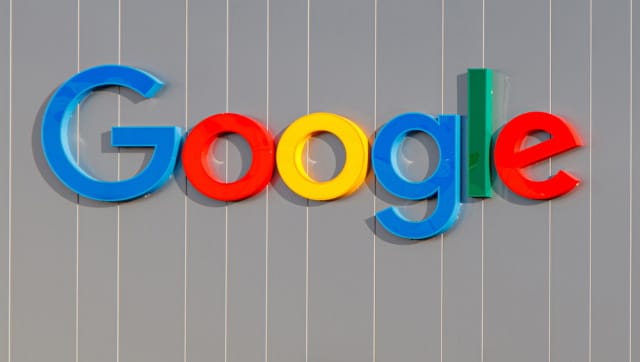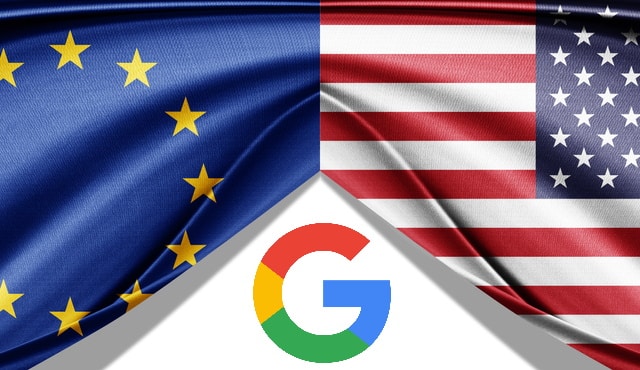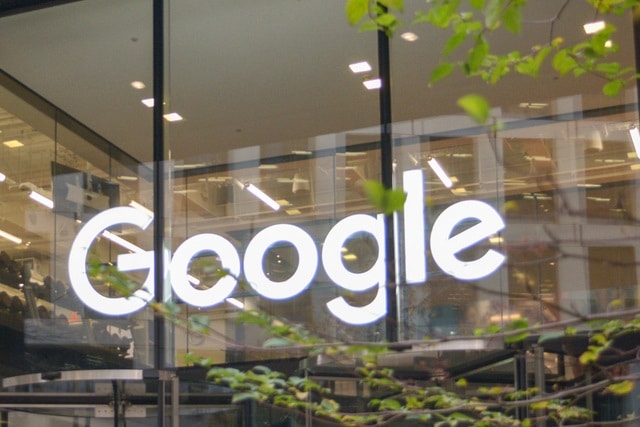
It won't be long until the iPhone ditches the Lightning connector in favor of USB-C, thanks to the EU
USB-C is now all-but ubiquitous as a connection and charger type for everything from smartphones and webcams to laptops and Bluetooth speakers. There are some notable exceptions, of course, not least of which is Apple's iPhone.
Although just about every Android phone has made the switch to USB-C, Apple has decided to doggedly hang on to its proprietary Lightning connector for the iPhone. But the EU could soon force the company's hand as it moves towards implementing a legal requirement for all phones to have USB-C port in Europe.

Americans have their sensitive bits exposed over 700 times a day
Americans have sensitive data relating to their online activity and location exposed 747 times daily, almost twice as much as Europeans who have their data exposed 376 times a day on average.
A new report from Atlas VPN looks at real-time bidding (RTB), which runs in the background on websites and apps and tracks what you look at, no matter how private or sensitive it is.

Europe is getting tough on big tech -- when will the US do the same?
In March, the European Union (EU) took a significant step toward reining in Big Tech offenders with the Digital Markets Act. Targeting the gatekeepers of today’s digital economy, the law is a historic piece of legislation and is a critical next step in the broader fight to level the playing field.
However, this watershed moment has failed to reach the US, which continues to fall short in protecting consumers and innovative small businesses from predatory tech companies. Congress must stop playing catch up with Europe and take a leadership role to protect its constituents. Courage and cooperation across the aisle are needed to strengthen the laws that protect the majority. Big tech, their lobbyists, and those seeking to fund their next election are far too cozy as mega-companies continue to exploit their dominance and suppress innovation. The lack of US action is embarrassing, as our friends across the pond take decisive steps.

Google announces Sovereign Controls for Google Workspace to boost data protection
In response to new European data rules, Google has announced Sovereign Controls for Google Workspace.
Aimed at organizations in both the public and private sector, the new controls are due to launch at the end of 2022. They will make it possible to control, limit, and monitor transfers of data to and from the EU, and Google says that further capabilities will be added in 2023.

Google introduces a way to reject all cookies... But only in Europe
After being hit with a fairly hefty €150 million fine by regulators earlier in the year, Google has added a new Reject All button to the cookie consent banners that have become ubiquitous on websites in Europe.
Google says that the change is in response to the fact that, "regulators who interpret European laws requiring these banners [...] have updated their guidance for compliance". So what exactly does the change mean, and is it likely to extend outside of Europe?

European watchdog orders Europol to delete 4 petabytes of illegally collected personal data
The European Data Protection Supervisor (EDPS) has ordered Europol to delete huge quantities of personal data about hundreds of thousands of people. The European Union's police agency has been found to have illegally collected billions of pieces of data about criminals, suspected terrorists and innocent citizens.
The colossal stash of information has been dubbed a "big data ark" by privacy experts, and it includes data gathered by hacking encrypted services and NSA-style grabs. The data store was collected over a period of six years, and the EDPS ruling means that Europol must delete data that has been stored for over six months. The agency also has a year to determine what of the remaining data it may legally continue to hold.

Europe leads the broadband speed table
Western Europe dominates the global internet speed table, containing eight of the top 10 fastest countries in the world for broadband.
Analysis of over a billions speed tests by comparison site Cable.co.uk shows if you want really fast speeds you need to move to the Channel Island of Jersey which tops the chart with an average speed of 274.27Mbps.

Europeans don't trust US tech giants with their data
A new study reveals that 82 percent of Europeans don't trust US tech giants with their personal files, despite increasing reliance on cloud services due to COVID-19.
The survey of 4,500 people across the UK, France and Germany, conducted by pCloud, one of Europe's fastest-growing file-sharing and cloud storage providers, finds the biggest concerns are personal data being used for commercial gain (51 percent) and the possibility of hacks (43 percent).

Cloud computing in Europe: Speculations on EU cloud tech in post-pandemic era
We see the European market today as the hottest area of the global cloud in a pivotal moment. While US cloud giants battle for world domination, China is building its "Great Cloud," Russia is testing its sovereign internet, and Europe is busy creating its own digital sovereignty.
The EU recently declared a massive digital transformation for its economy in the next decade where cloud and AI technologies will play an essential role. So what exactly can we expect from the European cloud industry in the short term?

Netflix and YouTube reduce streaming quality during coronavirus pandemic
As a result of the self-isolation, social distancing and quarantining caused by coronavirus, huge numbers of people around the world are now working from home. As Microsoft will attest, this is putting networks and services under huge strain as they struggle to keep up with a massively increased demand.
Streaming videos services have been sucking up huge amounts of bandwidth, causing congestion and poor online performance in Europe. To help counter this, both Netflix and YouTube have said they will reduce streaming bit rates to help cut down on traffic.

Brexit pushes Google to move UK user data away from Europe to the US
Google has confirmed that it plans to move data pertaining to its UK users out of Europe, and will instead store user accounts in the US.
The move comes as a result of the UK's departure from the European Union, and it is a side effect of Brexit that few would have predicted. Reuters reports that Google will be placing UK user accounts under US jurisdiction, adding that it "will leave the sensitive personal information of tens of millions with less protection and within easier reach of British law enforcement".

Facebook faces European probe over data collection
It is not just Google which is coming under the scrutiny of the European Commission – the European antitrust regulator have announced that they are also looking into the data collection practices of Facebook.
Just as with Google, the Commission has sent out preliminary questionnaires as part of an investigation into how Facebook collects and monetizes its data.

Google is under investigation over its data collection practices
The European Commission has started an investigation into "practices relating to Google's collection and use of data".
EU antirust regulators have already hit Google with record-breaking fines, but concern remains about how the company collects data about its users as well as how this data is then used. The regulator has contacted several companies to ask about agreements they have with Google to hand over user data and what -- if any -- money was involved.

Court rules Google need only apply the 'right to be forgotten' in Europe, not worldwide
Google has won a case in the European Court of Justice meaning the company does not need to apply the controversial "right to be forgotten" on a global basis.
In a case between Google and Commission Nationale de l'Informatique et des Libertés (CNIL ) -- a French privacy regulator -- the court ruled that Google need only remove links from search results within Europe.

Apple is still trying to avoid paying a $14 billion tax bill in Europe
Apple is fighting in Europe's General Court to avoid paying $14 billion (€13 billion) in back taxes after an EU ruling back in 2016.
The iPhone-maker is one of many multi-national companies who have taken advantage of tax benefits in Ireland -- so-called "sweetheart deals" that the country offers to large companies and which the European Commission deemed illegal. Apple told Europe's second-highest court that the hefty tax bill "defies reality and common sense".
